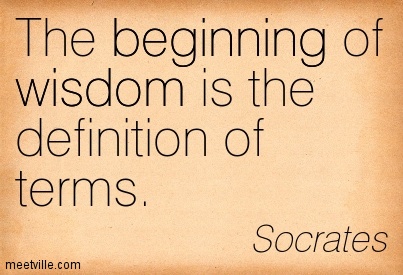
“The beginning of wisdom is the definition of terms” ~ Socrates
Yesterday I had a wonderful and inspiring two-hour lunch conversation which became an exploration of the definition of wisdom.
The quote from Socrates came to mind, as there was much discussion around the meaning of terms in our exploration of what wisdom is.
My own starting point for a definition has been:
“Wisdom is something concise, that, when you hear it, you feel you always knew it”.
Having read that in one of my posts, this had my lunch companion challenge that definition and so our exploration began.
My lunch companion is a wise scholar a number of years my senior, someone with a huge amount of knowledge and much wisdom.
A few thoughts from reflections on that conversation
Wisdom is Humble and Curious and comes from that place
On reflecting on our conversation, I recognise that, even with our combined numerous decades of work and study around topics such as leadership, strategy, behaviours and other areas related to wisdom in business, we also were both open, humble and hungry to listen and learn from the other.
Wisdom is both listening and then speaking
One of the questions we considered was: “if relevant and useful knowledge is not applied, is it still wisdom?”.
My mind now goes to an earlier post earlier inspired by Chip Conley’s thought that “Knowledge Speaks, Wisdom Listens”.
I wonder, then. Wisdom may well indeed start with listening, yet if what one learns and distils to simplicity is not spoken of so oneself and others can apply it in service of others, then it is of little value.
Perhaps by speaking, it may inspire others to action.
Perhaps by acting on it oneself, that combination of “being and doing” can further inspire.
Wisdom must evoke a feeling in you
We are inspired to action by how something makes us feel, not what it engages in our rational mind.
I consider this in: “Cogito Ergo Sum, or Sentio Ergo Sum ?”
When I coach, I know that change, behavioural shifts, cannot come from rational thought. Change comes from feelings, from something that embeds in our body.
So, it must have a strong element of evoking a feeling which then lands in us as a “knowing”.
Wisdom is simple, clear and concise
Two quotes/phrases with posts behind them:
“Simplicity on the other side of complexity”
“Simplicity is the ultimate sophistication”
It is simple and to the point.
In closing, my partner in this exploration and I will be continuing this conversation. I very much look forward to that.
